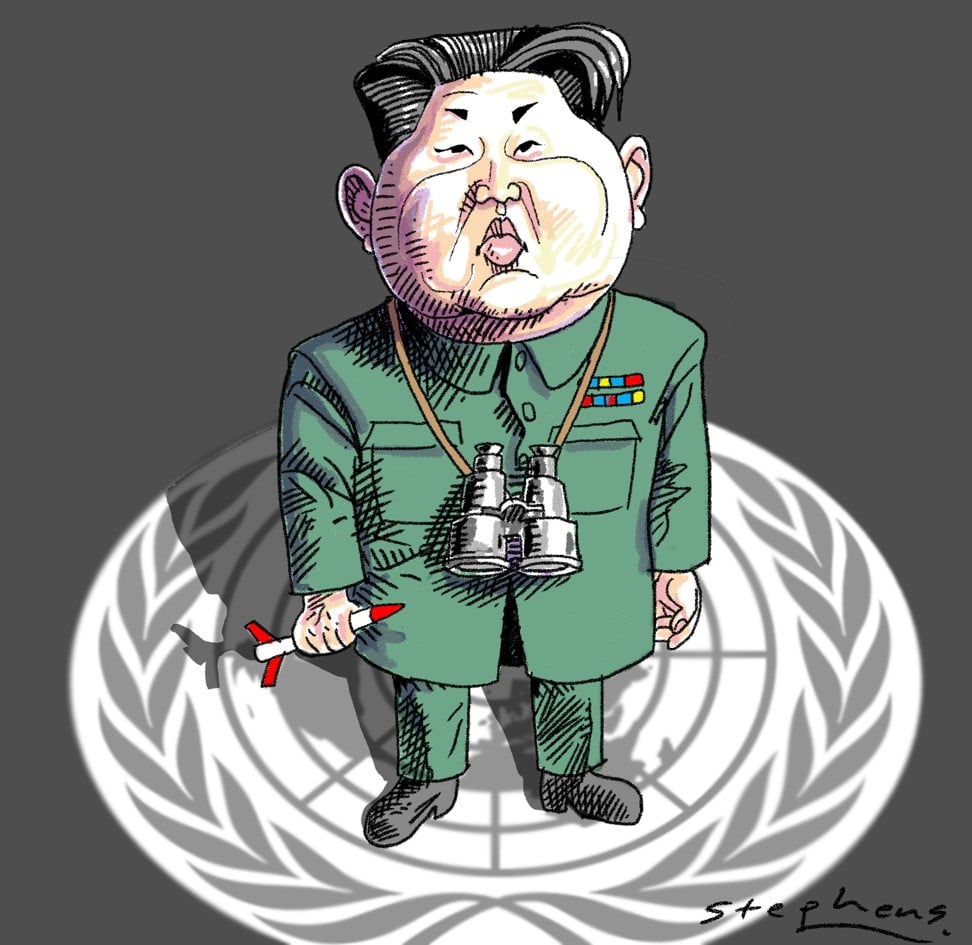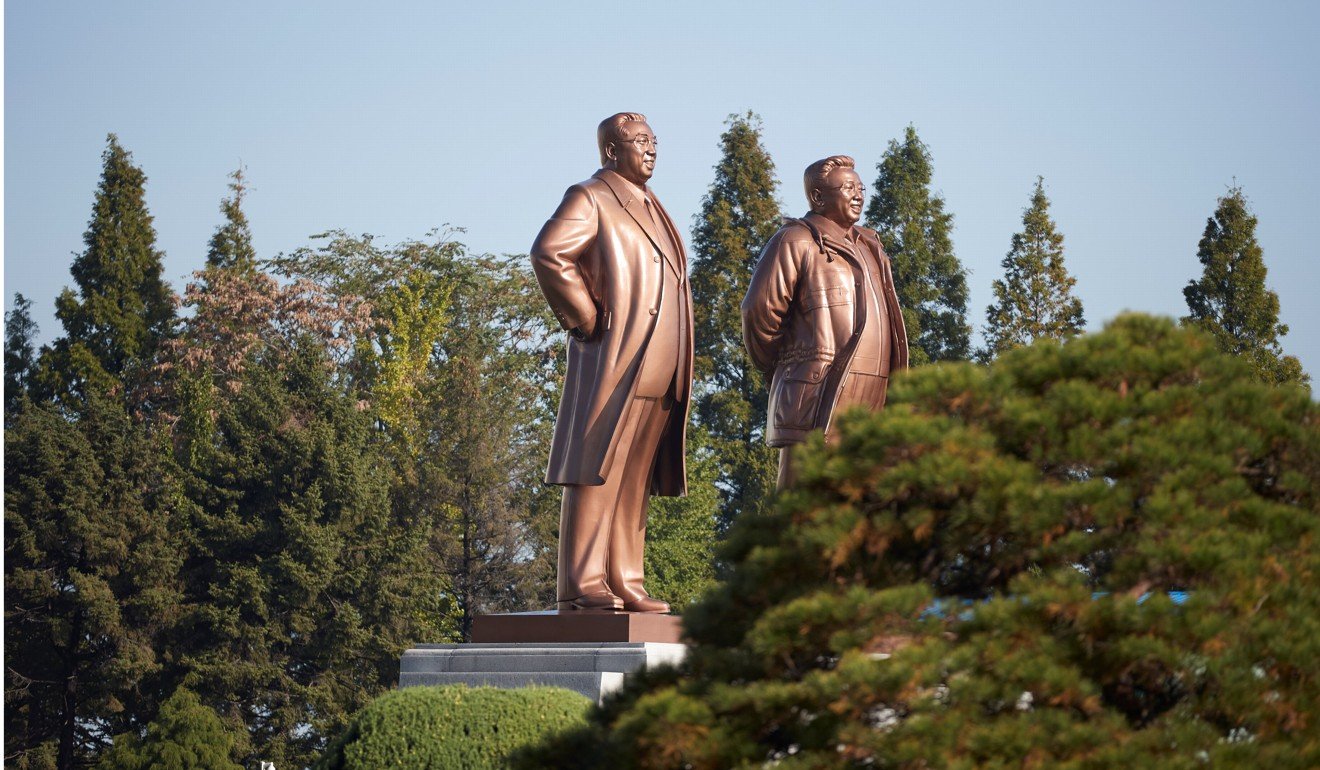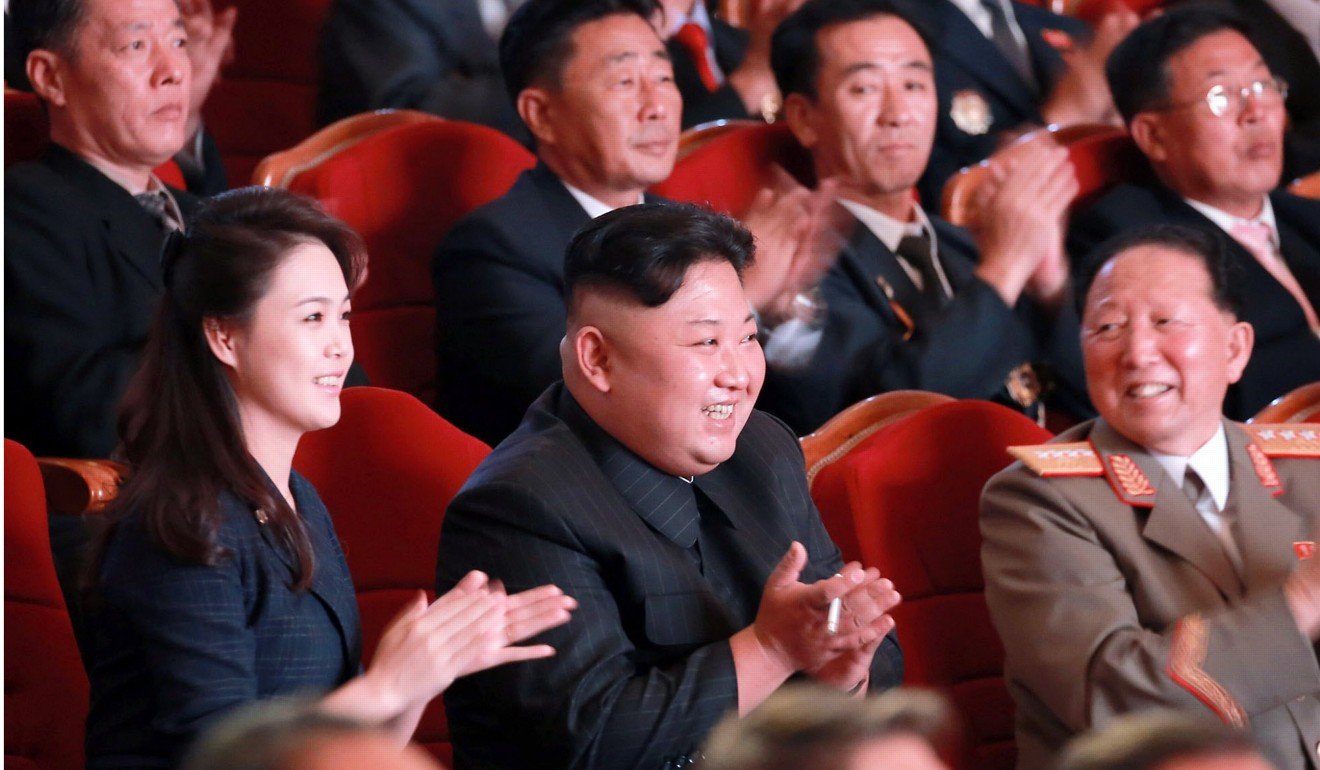
UN-led multilateral talks offer the best hope for peace in Korea
Charles K. Armstrong and John Barry Kotch say the UN has been a central player in Korean affairs since 1948, and the major powers that are the permanent members of its Security Council have experience in brokering the Iran nuclear deal. Its intervention in the current stand-off between North Korea and the US is sorely needed

A war of words: Kim vs Trump
Kim Jong-un may be banking on a US military strike to ensure his survival
Preventing another Korean conflict requires a fully engaged diplomatic effort in the Security Council
Council deliberations would also greatly benefit from a clear Sino-American understanding on Korea’s political future. Such an understanding is, according to Henry Kissinger, “the essential prerequisite for denuclearising Korea” and defusing the nuclear crisis.
Dear Trump, North Korea tortured me but please don’t attack it

Ironically, in the 11 years since North Korea’s first nuclear test, the UN has done little to respond to Pyongyang’s actions other than pass more sanctions resolutions, which so far have not deterred North Korea from advancing its nuclear weapons and missile programme.
Trump’s threat to withdraw from Iran nuclear deal is a concern for China
Given that a consensus already exists with respect to sanctions against North Korea, a P5 negotiating channel with Pyongyang constitutes the logical next step. This may even create a positive feedback loop vis-à-vis the preservation of the nuclear agreement with Iran.

The previous multilateral framework for solving the North Korean nuclear challenge – the six-party talks involving China, Russia, North and South Korea, Japan and the US – was based on the principle of “action for action and commitment for commitment”. This “didn’t work out”, to paraphrase a Trump tweet, even after North Korea blew up its reactor’s cooling tower in a show of goodwill in 2008. However, the higher profile of the P5 could make a real difference by providing a single-minded focus, similar to the one that went into reaching the nuclear deal with Iran. The P5 would take up where the six-party talks left off.
Donald Trump’s principal reason for criticising the Iranian accord is that, as a technical agreement, it lacks a political component constraining Iran’s missile programme or curbing Iranian activity as a purveyor of terrorism in the region. By contrast, a Korean agreement would need to meet a higher bar by taking both into account, although denuclearising North Korea would be far more complex than simply shipping enriched uranium out of the country, as in the case of Iran, or shutting down a nuclear reactor and putting spent plutonium in cooling ponds, as provided for under the 1994 US-North Korean Agreed Framework.
The world’s dilemma: Why North Korea will become a nuclear power despite pressure
A score or more nuclear devices, an untold number of missiles of various capabilities, as well as a rudimentary command and control system must be accounted for. And even if Pyongyang were eventually to agree to negotiations, how and by whom would denuclearisation be accomplished?
Russia could play a key role, as it did with Iran
Here, Russia could play a key role, as it did with Iran, building on President Vladimir Putin’s success in the 1990s in negotiating a three-year missile moratorium with Kim Jong-un’s father, Kim Jong-il. Moreover, Moscow could oversee and monitor a freeze in nuclear and missile testing under a UN mandate, ultimately leading to the elimination of North Korea’s nuclear and missile programme.
On the political front, a peace treaty replacing the 1953 armistice would have to be negotiated and multilateral security guarantees provided along with the normalisation of diplomatic relations. A sequence of political and technical steps should be included in a balanced way.
Negotiations with Iran took more than a decade to complete before agreement was reached in 2015; a similar time frame would be reasonable for talks with North Korea. As well, we should remember that more than 500 meetings over a two-year period (1951-1953) were needed to reach agreement on an armistice in Korea.
The stakes today are far higher, involving the potential use of nuclear weapons, than when war erupted in Korea in the 1950s. Preventing another Korean conflict requires a fully engaged diplomatic effort in the Security Council, the world’s highest forum in matters of war and peace.
Charles K. Armstrong is professor of Korean Studies at Columbia University. John Barry Kotch is a political historian and former State Department consultant. They are co-authors of “Sino-American Negotiations and Kissinger’s UN Diplomacy on Korea”


